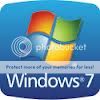Hi.
Before you say it. Yes I did read the stickied thread about windows 7. But the part about OEM didn't really answer my questions. It made me more confused.
Long story short I've lost my old copy of windows 7. Case and all. I have no idea where it went. Apparently it got absorbed into the Aether or something.
And I've finished building my first pc (for games) and now I need an operating system.
And I saw how much cheaper the OEM version is compared to the 'full' one (about $80)
After some extensive google searching on it I still came up dry.
From what I have gathered from it. OEM is supposed to be fore manufacturers or resellers to pre install windows on computers they build for other people. However most online retailers parade the OEM around for general public use and a lot of people seem to buy it to just use for themselves. And also that you can only install the OEM to one machine.
That part I vaguely understand.
The things I want to know are.
TL;dr
If I were to say, purchase a OEM version of Windows 7 Home premium 64 bit from say newegg or amazon. And I got it. Hypothetically speaking of course (totally not going to break any license agreements, no sir). Would installing it be the exact same process? Like if I plopped the disk into the tray would that be it? Exact same installation as if I were to have gotten the full version and put it into the cd drive? No extra hoops to jump through?
Because $90 is a whole lot more appealing than $170 right now. Moneys pretty tight.
Sorry to have asked this but I really couldn't find a straight answer anywhere and I just want to get on with it and setup my pc to play games on.
Thank you for your time.
Before you say it. Yes I did read the stickied thread about windows 7. But the part about OEM didn't really answer my questions. It made me more confused.
Long story short I've lost my old copy of windows 7. Case and all. I have no idea where it went. Apparently it got absorbed into the Aether or something.
And I've finished building my first pc (for games) and now I need an operating system.
And I saw how much cheaper the OEM version is compared to the 'full' one (about $80)
After some extensive google searching on it I still came up dry.
From what I have gathered from it. OEM is supposed to be fore manufacturers or resellers to pre install windows on computers they build for other people. However most online retailers parade the OEM around for general public use and a lot of people seem to buy it to just use for themselves. And also that you can only install the OEM to one machine.
That part I vaguely understand.
The things I want to know are.
TL;dr
If I were to say, purchase a OEM version of Windows 7 Home premium 64 bit from say newegg or amazon. And I got it. Hypothetically speaking of course (totally not going to break any license agreements, no sir). Would installing it be the exact same process? Like if I plopped the disk into the tray would that be it? Exact same installation as if I were to have gotten the full version and put it into the cd drive? No extra hoops to jump through?
Because $90 is a whole lot more appealing than $170 right now. Moneys pretty tight.
Sorry to have asked this but I really couldn't find a straight answer anywhere and I just want to get on with it and setup my pc to play games on.
Thank you for your time.




